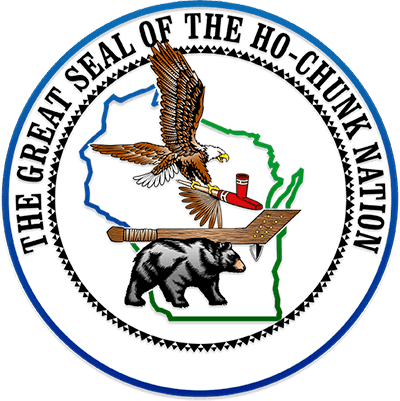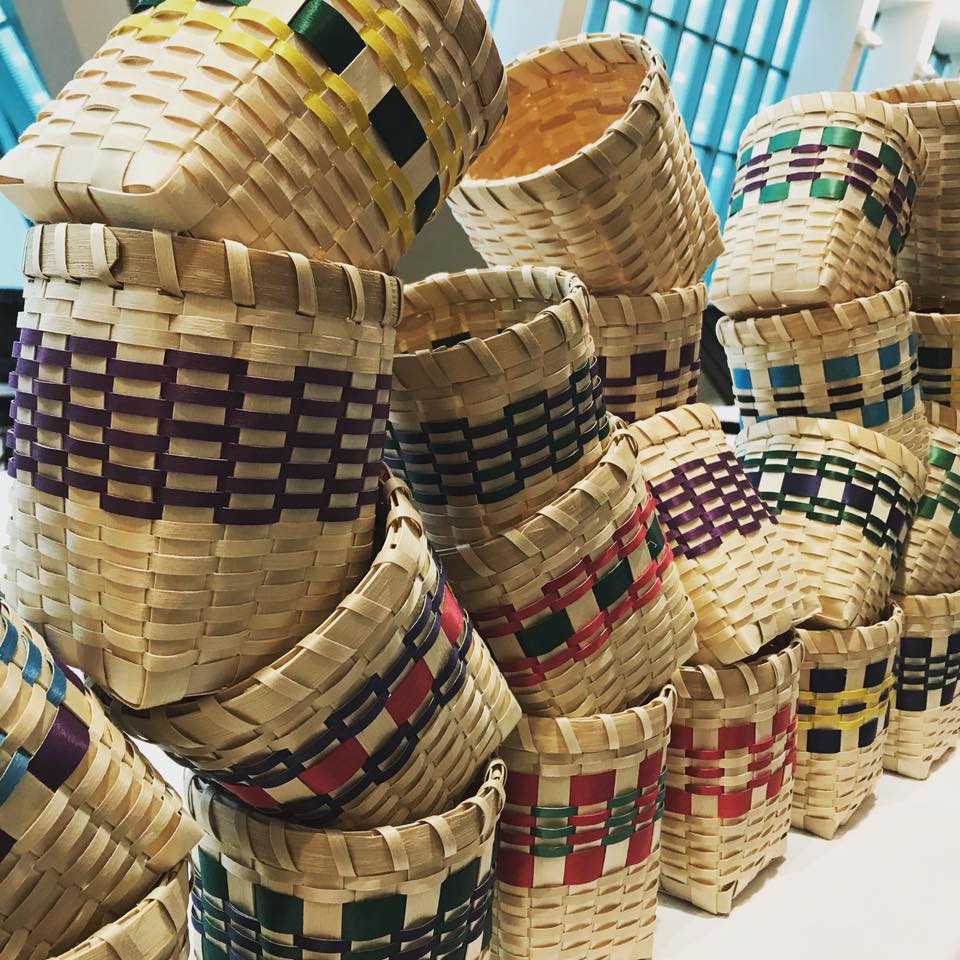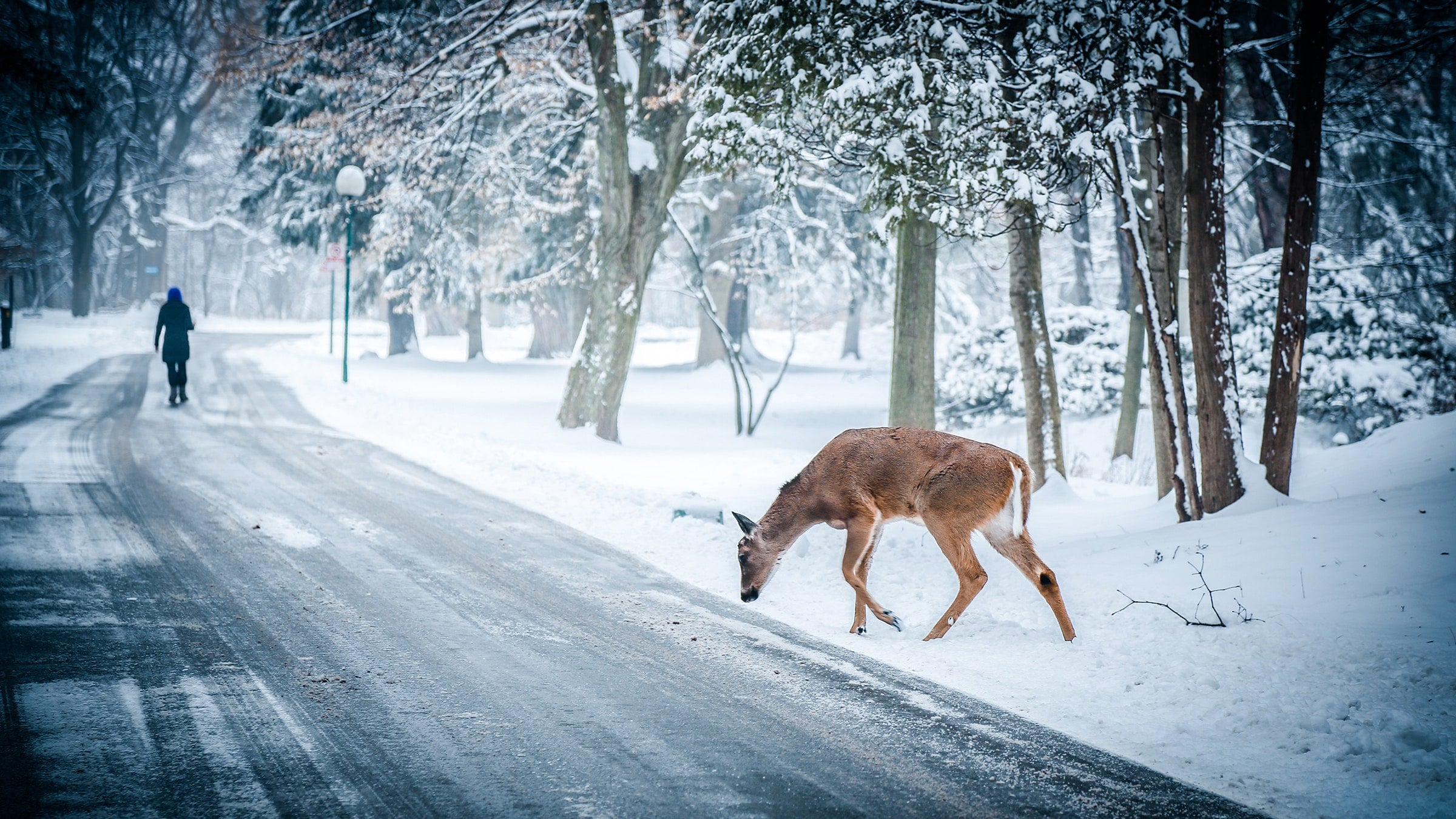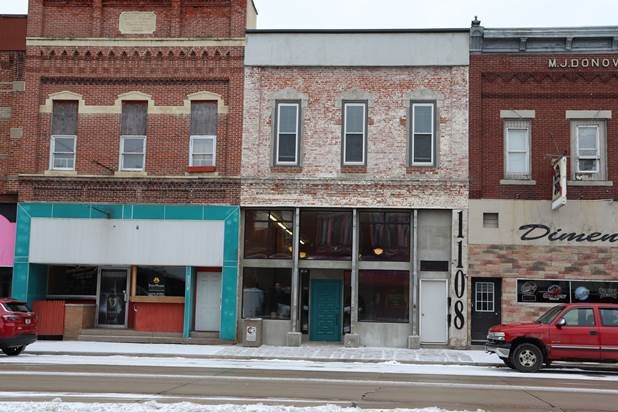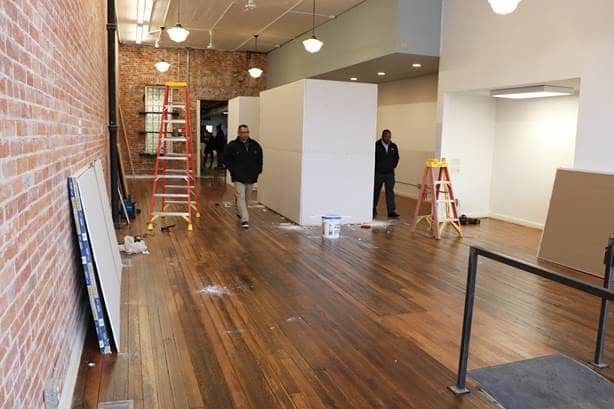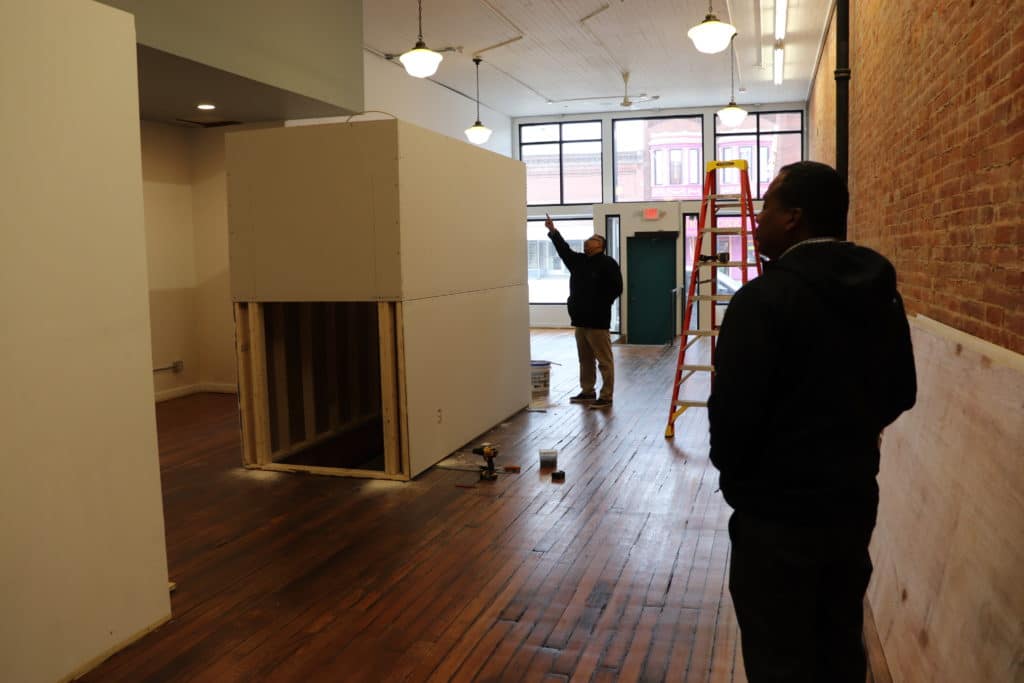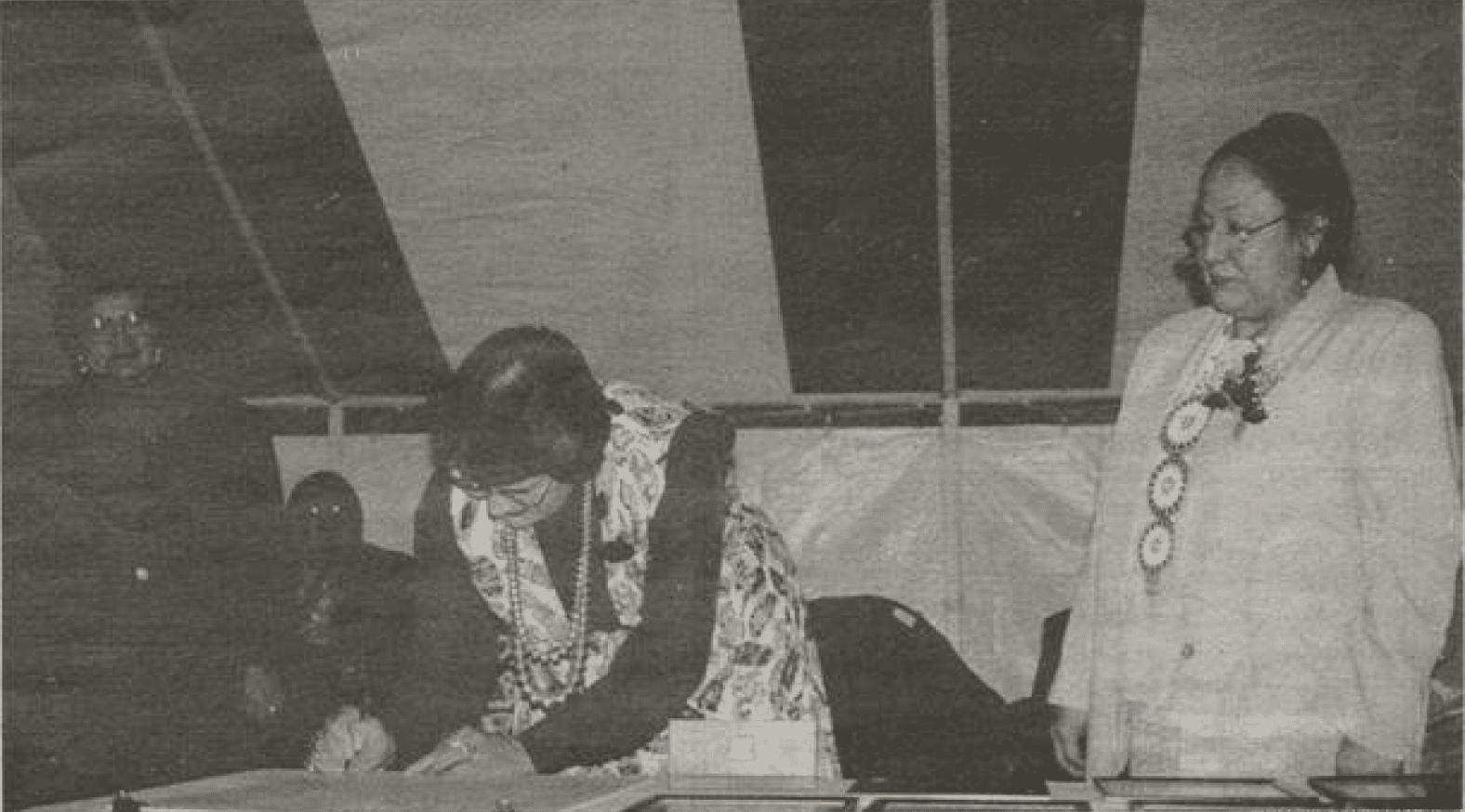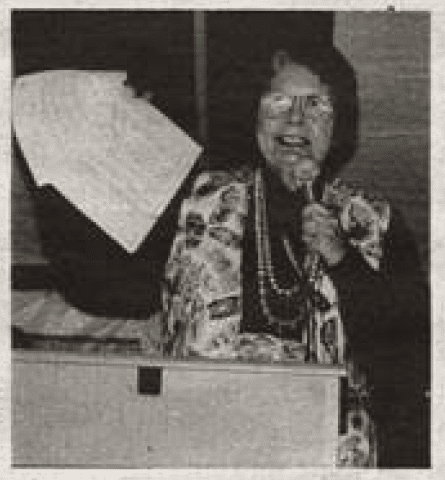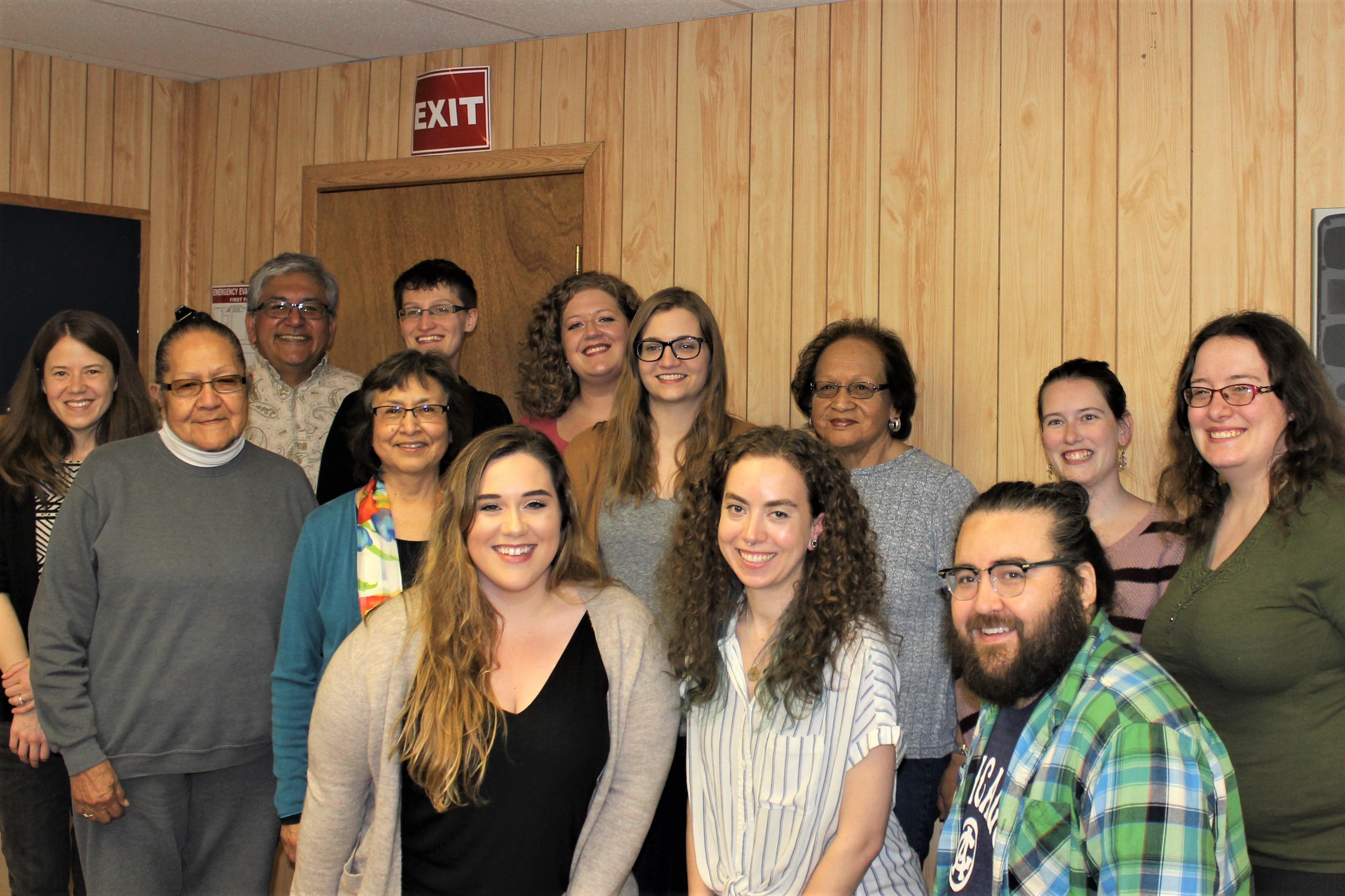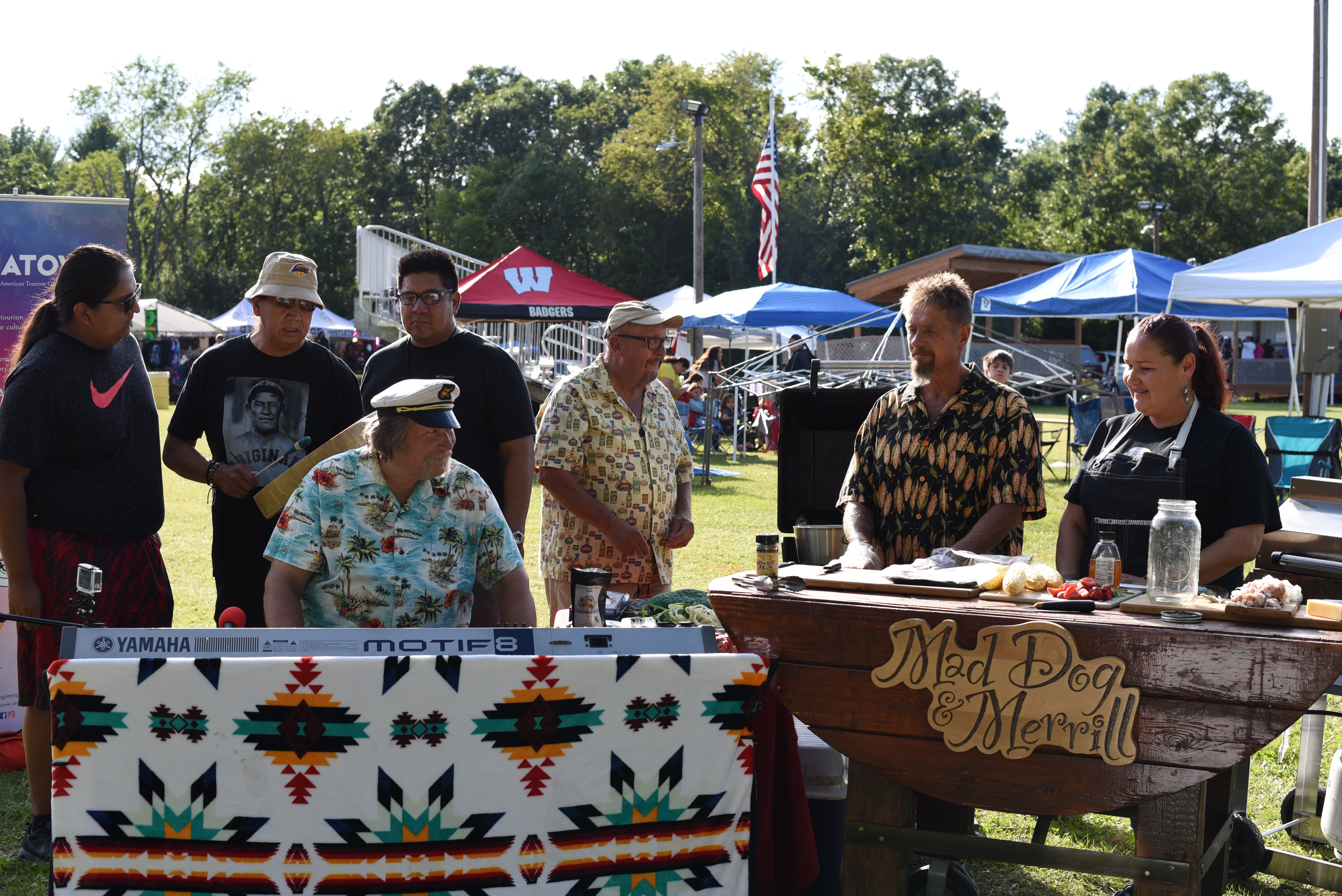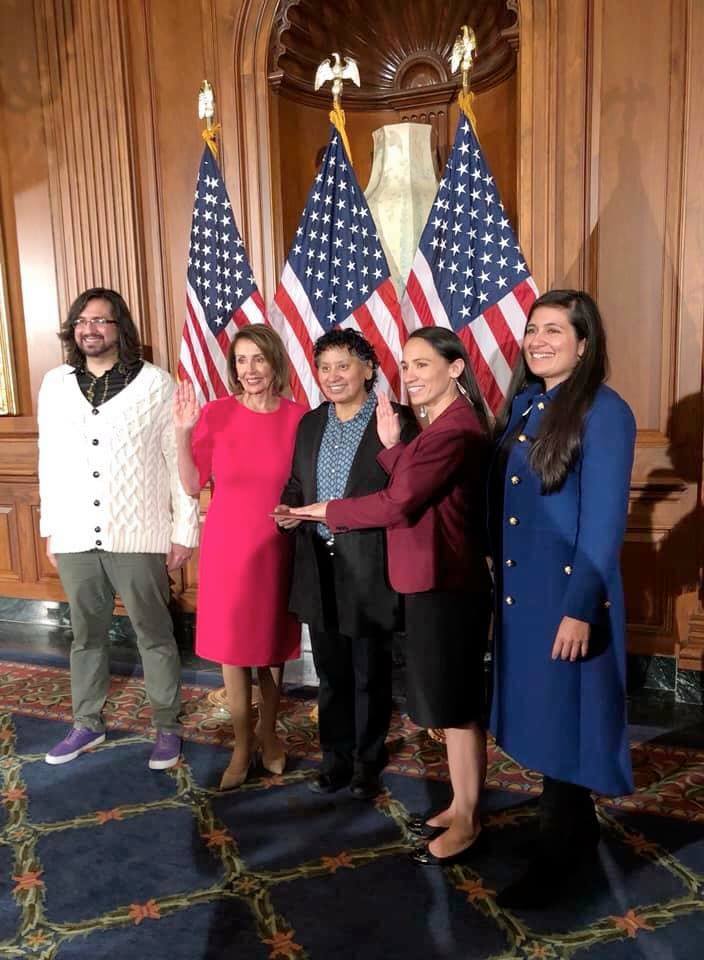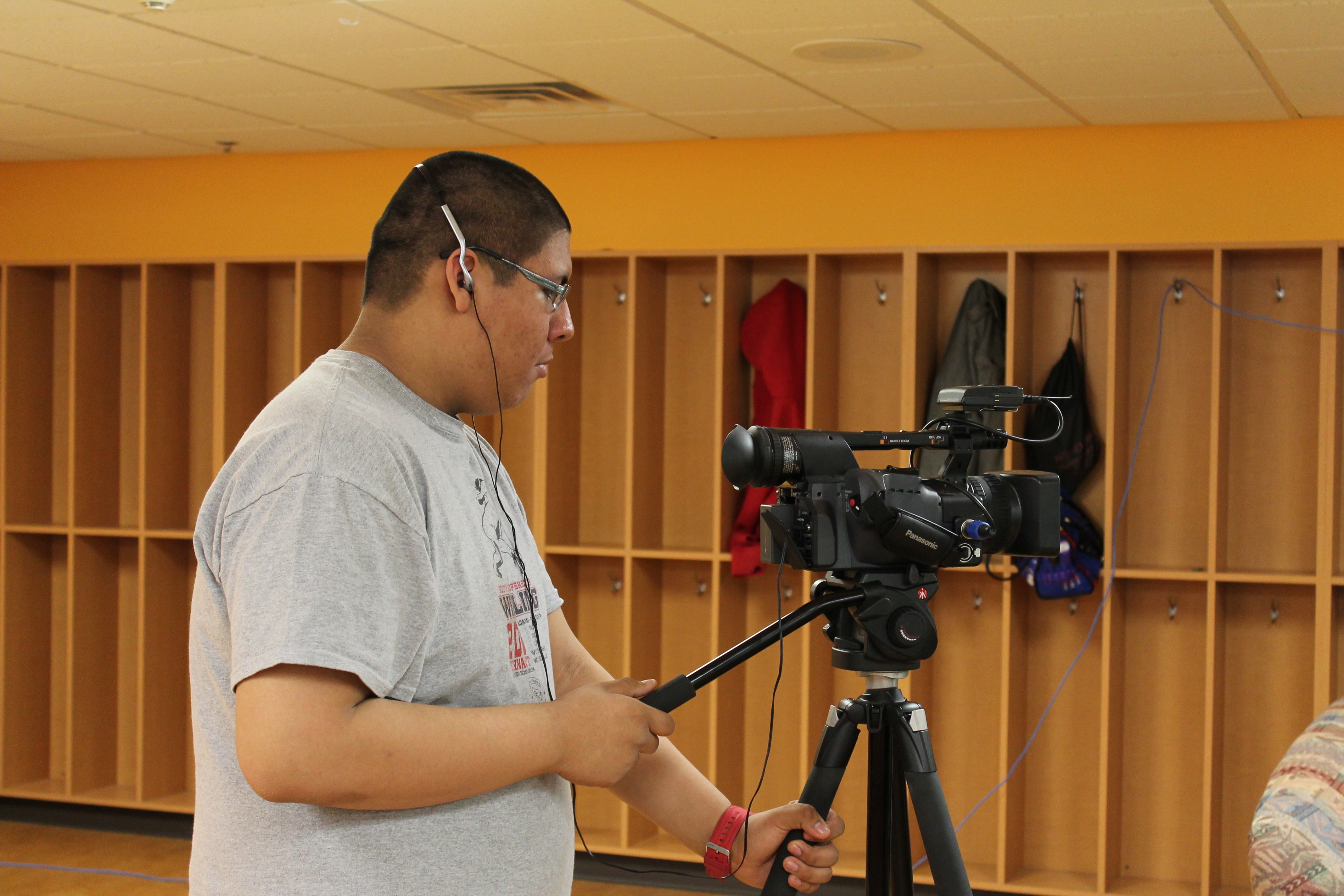By Ardith Van Riper
The Ho-Chunk Nation Language Division along with the participants from the UW-Madison Tribal Libraries Archives and Museums (TLAM) class hosted a thank you luncheon on May 9 at the Language Division Office in Mauston.
Their unique partnership celebrates its third year of work
on the Ho-Chunk Nation Digital Library project that helps the Nation curate and
use its language resources while providing the UW students with a service
learning project involving an actual working collection of materials.
The success of this project is primarily due to Omar Poler,
instructor of the TLAM class at UW-Madison; Janice Rice, retired UW librarian
and member of the Ho-Chunk Nation; and the students from the last three spring
semesters’ TLAM classes. George
Greendeer, who has previous genealogy work experience with the Nation’s
Enrollment Division and co-authored People
of the Big Voice: Photographs of Ho-Chunk Families by Charles Van Schaick,
1879-1942, was hired back in December as the Project Specialist.
TLAM is an effort at UW-Madison to bring indigenous
information to library and information science education through coursework,
service-learning, continuing education, community-building, networking,
resource sharing, and long term partnerships with Native American cultural institutions. The TLAM course runs every spring.
This spring, the TLAM class worked in groups on the Ho-Chunk
Nation Digital Library project. Kristen
Maples, Amy Sampson, and Alicia Eldridge worked with the Ho-Chunk elders. The elders provided translation and background
information on audio and video recording for the students to include in the
catalog. These elders were Maxine
Kolner, Andy Thundercloud, Georgia Lonetree, Elliott Garvin, Hope Smith, and
Richard Mann.
Elders who are recorded on the audio or video reviewed to
date are Kenneth Funmaker, Sr., Edward Lonetree, Jr., Corina Lonetree, Sidney
Hall, Ardella Quackenbush, Bill O’Brien, Merlin Redcloud, Gordon Thunder,
Annabelle Lowe, Maxine Kolner, Lila Blackdeer, Wayne Falcon, Rebecca Greendeer,
Tom Hopinkah, Myron Lowe, Eugene Cloud, George Stacy, Cecil Garvin, Larry
Garvin, Richard Mann, Dennis Funmaker, Sr., Chloris Lowe, Velma Lewis, Arvid
WhiteEagle, Carlos Funmaker, and John Greengrass.
UW-Madison studentsAlianna
Bozhardt, Alicia Eldridge, and Kristen
Whitson worked on policy. Policy
included Deed of Gift form, Donor Guide, and applicable copyright and
intellectual property law.
Justin Cornille, Samantha Wolfe, and Sarah Drake worked on
cataloging. Kristen Whitson and Sarah
Drake worked on scanning. Dani Fulwilder
worked on archival.
The Digital Library project began three years ago with
planning on what needed to be done to catalog, digitize, and archive the
Language Division’s audio, video, and written documents. The initial steps were sorting and organizing
material. Then converting all the
Nation’s audio and video recordings and scanning the hard copy written
documents into digital files.
Each item is meticulously cataloged using 36 fields of
keywords and descriptor details, which are being filled in as the group of
students and Nation staff make their way through each item.
Items are then uploaded to the Mukurto (MOO-koo-too)
management system after the cataloging process has been completed. This management system is where users will be
able to search online and see items that are in the Language Division’s
collection. The total number of files in
the catalog exceeds 1,000, and that number will be more significant when the
site goes live.
“Users will be able to create an account, and then the users
will be grouped into what are called communities. They’ll be levels of access. Depending on the type of material and subject
matter, we can group people by user class group and then assign them the kind
of access that we want them to have,” said Division Manager Adrienne Thunder.
“We can even change the setting so that only students and
mentors from the Language Apprentice Program can access these materials or only
employees of the Language Division.
There is no limit to the number of layers we can create,” said
linguistics student Andrea Cudworth.
Thunder says tribal members will have specific access that
the general public wouldn’t have.
Eventually, this will all go through the Language and Culture committee
to determine the accessibility of the items.
The Nation benefits from having language resources made more
accessible, better accounting of materials, and preservation of the original
materials. Some language resources
include audio and video capturing the spoken Ho-Chunk language, children’s
books in the Ho-Chunk language, photos of Ho-Chunk ancestors, Ho-Chunk
dictionary, photos of Ho-Chunk crafts, Ho-Chunk language lessons, and the
collection keeps growing.
The project provides valuable professional and learning experiences
for UW-Madison students.
“All of us are library and information study students that
means we are studying to become librarians and archivists. I have to tell you that for me, I am in
archives to do exactly what we got to do here.
This has been a very fulfilling experience,” expressed UW-Madison
Graduate Student Kristen Whitson.
Project Specialist George Greendeer said, “They (students)
cataloged 500 items, documents. We were
only expecting 300 for the semester because they had a lot of other stuff to do
for their course study.”
The luncheon celebrating this work started with Division
Manager Adrienne Thunder speaking and elder Maxine Kolner saying a prayer over
the food. Janice Rice and Andrea
Cudworth were each presented with a certificate of appreciation and a blanket
for their efforts on the project.
The UW-Madison students prepared the food shared with
Language Division staff and honored guests at the luncheon. The students who worked with the elders
presented the elders and George Greendeer with homemade mini loaves of
breads. Staff at the Language Division
office were also gifted with an Instant Pot by the UW-Madison students.
Kelly Jo Funmaker attended, representing the Office of the
President, and extended gratitude to the individuals who assisted in the
project.
“I know that this one of the President’s top priority, not
even for the Ho-Chunk Nation but himself also.
I know that he would be very proud and very happy with what is going on
today,” said Funmaker.
“The fact that they’ve (UW-Madison students over the past
three years) not only categorized all of the material, digitized all of the
material, and now we are to the point where we are starting to populate the
site that’s going to developed for real use,” explains Thunder.
Some of the UW-Madison students have volunteered to return
in the summer and continue their work.
Thunder says this work, as much as has been done, is only
the beginning. “In the future, the Division hopes to add to the collection with
contributions of materials collected by other libraries and museums, tribal and
public personal collections, and the Division’s own continuing language
revitalization work.”
The Nation’s Mukurtu database will house a vast collection
of resources to aid us in the coming years as our Hoocak-first speaker
availability declines and our new learners are adding to their knowledge and
increasing their use of our language.
This article was
previously published in the Hocak Worak
